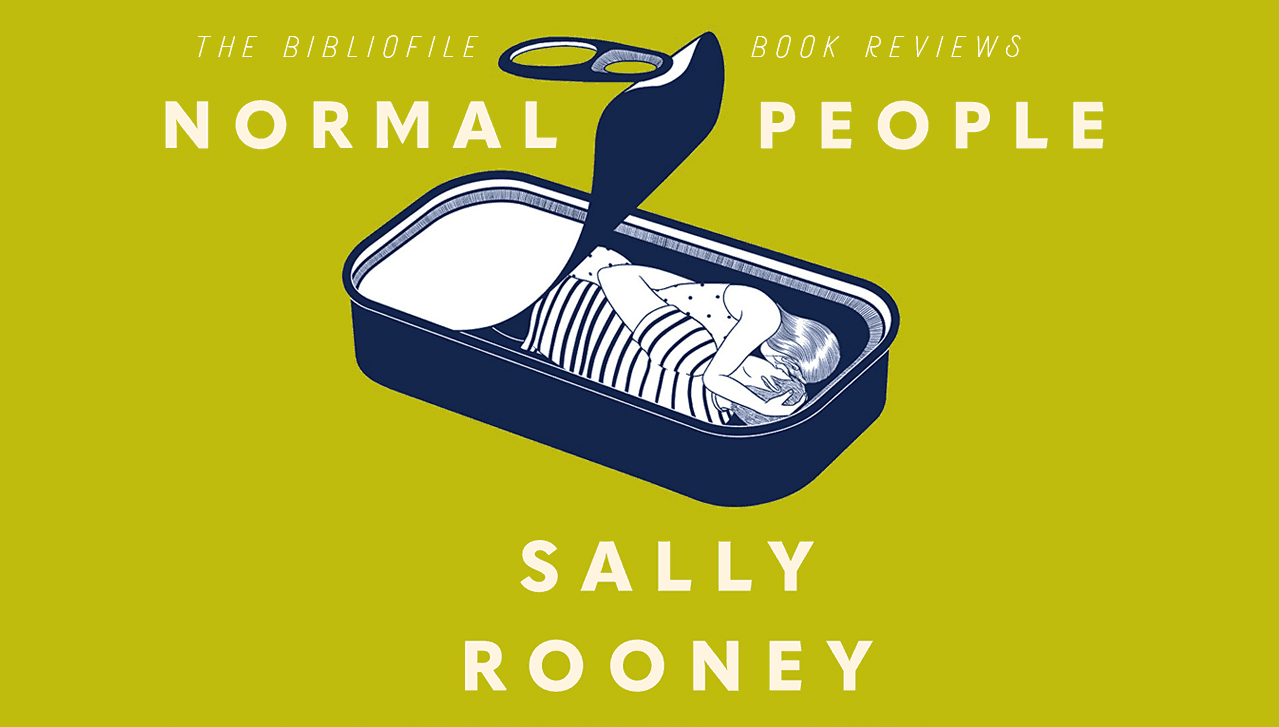By Katerina Taxiaropoulou,
“But for her the pain of loneliness will be nothing to the pain that she used to feel, of being unworthy. He brought her goodness like a gift and now it belongs to her. Meanwhile his life opens out before him in all directions at once. They’ve done a lot of good for each other. Really, she thinks, really. People can really change one another.”
-Sally Rooney, quote from Normal People
Barely a year following the release of her debut novel, Conversations with Friends (2017), the young Irish author Sally Rooney returned with a book that was to become a best-seller in both Europe and the U.S. Normal People (2018) received wide critical acclaim and ranked 25th on The Guardian’s list of the 100 best books of the 21st century. In 2020, Normal People was adapted into a series for BBC Three and Hulu, which was nominated for four Emmy Awards.
What earns Rooney’s writing such high praise is its particularly contemporary feel. Normal People takes place in Ireland where digital literacy has replaced Catholicism as a central element of culture. The characters use their computers to conduct research for their college papers, but also to communicate with each other and for themselves. As Kate Clanchy notes, email in the book functions “like Victorian letters, to consider the workings of the heart” (The Guardian). Facebook also comes into view and its use often prompts the characters to reflect on social hypocrisy.
Beyond the strong presence of technology, however, Normal People has been characterized as contemporary, mainly because of the open and straight-forward manner in which it exposes mental struggle, untouched by gender, economic, or any other stereotypes. The protagonists are Connell Waldron, a young man with a gift for literature, who is dealing with anxiety and depression, and Marianne Sheridon, a young woman who has been traumatized by violent family members and so now presents low self-esteem and “masochistic tendencies” (The Guardian). Connell and Marianne stand at the centre of the narration while everyone else’s experience is blurry.
1. The Early Years

We first meet Marianne and Connell in Sligo, a rather small town in the north of Ireland, facing the Atlantic Ocean. At this point, they are teenagers, attending the last year of high school. Both are excellent students, but Marianne is an outcast, often bullied for her flat chest and her habit of reading books while eating. Connell in contrast appears socially secure, a star football player, always surrounded by friends and female admirers. Inside, however, he is terribly shy and feels like he needs to pretend so as to remain accepted.
The two heroes also differ in terms of social class. Marianne comes from a high standing family of lawyers and has been raised “in material wealth and emotional poverty” (NPR). Her father used to beat her mother and, after his death, Marianne’s brother directed the same aggression towards her. She often seeks her mother’s support, but the latter never reacts. Connell on the other hand comes from a lower middle-class family. His mother had him in her teens and is working as a cleaning lady for Marianne’s mother. Ironically, this common and uneducated woman is proved to be a far better mother.
It is through this association of his mother with the Sheridans that Connell sees Marianne outside school and finds the courage to approach her. They soon develop a romantic relationship, helping each other explore their sexuality but also themselves. Marianne advises Connell to study English, seeing that this is the only course he truly enjoys, and encourages him to apply at Trinity College Dublin, a particularly prestigious school. In his turn, Connell repeatedly states his love for Marianne, as he has sensed her feeling of unworthiness. As Alan Eppel explains, because of the way he was raised, Connell is possessed by “a sense of compassion, protectiveness and caring” (Journal of Psychiatry Reform).
Yet still, all this affection he cannot express in public. His desire to keep their relationship a secret hurts her and when he asks another girl to the school dance, she quits school and only visits to take her final exams.
2. College Life

The next time we meet them, Marianne and Connell have moved to Dublin to study at Trinity. He is studying English and she is studying Law. They see each other again at a party, agree to stay friends but soon get romantically involved. Although they are more mature this time, the two of them struggle to see beyond their traumas and communicate their needs. Marianne still feels unworthy of love and Connell thinks that he stands below her because of his financial and social status. According to Heller McAlpin, the third person narration, which alternates between Marianne’s and Connell’s voices “wryly underscores the gap between their perspectives” which always leads to “painful misunderstandings” that result in the couple’s second break up (NPR).
While they are apart, Connell becomes involved with a nice girl for whom however he is not emotionally available, and Marianne finds two boyfriends, who both abuse her. From a psychodynamic perspective, she has “internalized a self-representation, of being damaged, unworthy and essentially unlovable”, a “False Self” (Journal of Psychiatry Reform). Hence, she seeks violence, at times she even asks for it.
After a few months of losing contact, the suicide of an old classmate brings them together. Seeing how relieving each other’s presence is, they start talking again. While Marianne is staying in Sweden for a semester, Connell collapses under depression. Despite the distance, Marianne stayed close to him, talking to him for hours on Skype, making sure he took his medicine and visited the school’s therapist. Once she is back, he becomes a witness to a violent incident from her boyfriend. This incident pushes Marianne to talk for the first time about her brother’s cruelty and how this has made her feel like a lost case.
3. The End of An Era

During the summer holidays following their last year of studies, Marianne and Connell find themselves back where everything started, in Sligo. They spend a lot of time together, as this makes them feel better about everything. One night, Marianne’s brother hits her and she finds the courage to call Connell and ask him for help. He takes her straight to the hospital and promises that he loves her and will never allow anyone to hurt her. As Allan Eppel states, some people bring out the worst in us, others elicit the best. In the “Self-at-Best dyad there is access to genuine emotion, feelings of authenticity, and effectiveness” (Journal of Psychiatry Reform).
They move in together and spend time healing each other. By Christmas time, Connell becomes free from his anxiety and is able to kiss Marianne in public. Marianne also finds a new family in Connell’s house, warm people who accept her for who she is. Right at the peak of happiness, Connell is offered a job as a writer in the U.S. They break up peacefully, admitting the good they have done to each other. Indeed, in the end, Connell and Marianne seem to “mend and share an identity” (The Guardian).
The ending is open-ended, as it invites many different interpretations. What stays with the reader is that broken people are normal people and that there is nothing wrong in feeling confused or going through emotionally hard stages.
References
- Normal People by Sally Rooney review – a future classic. The Guardian.com Available here
- Normal People’ Appeals Across Genders And Generations. npr.org. Available here
- Normal People: the self-at-worst and the self-at-best. Journal.org. Available here




